10 Unpublished Stories of the Extraordinary People I Interviewed.

I was invited by UBD to share my experience on their media advocacy program this morning. Instead of teaching them how to write better or how to be a better media professional one day, I thought it would be more interesting to share with them the behind-the-scene stories that I have not shared in the public. I think the university lecturer can do a much better job teaching the students technical writing skills.
What I’m about to share though, are unique, because these are all my stories. Not even the best professor in the world can duplicate. I have interviewed plenty more outstanding minds and amazing people throughout my career that are not included in this journal. I chose these 10 stories exactly for this particular context.
Going through this experience, I’m personally surprised by some of the new lessons I discovered along the way. I hope you too, would be able to share the joy in my work.
Enjoy!
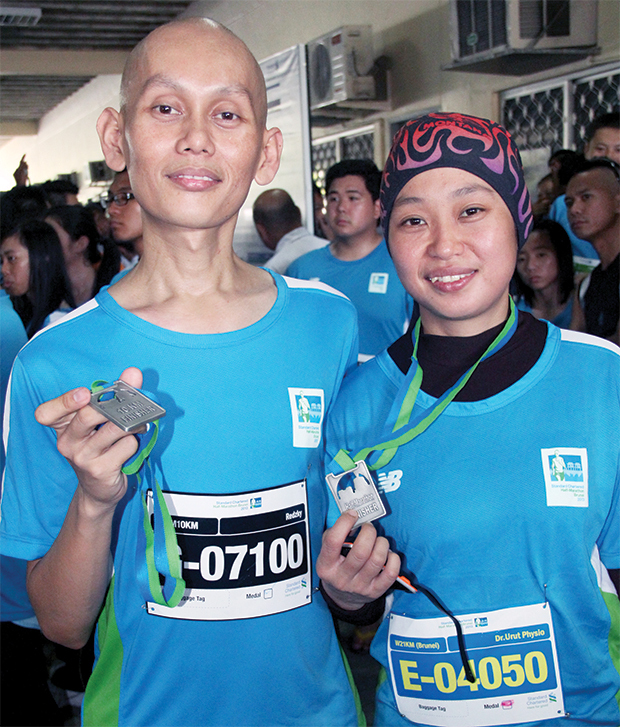
Radzky Fadzillah Mahmud (L), a cancer patient from JPMC with his sister during the Standard Charetered Half-Marthon 2013 that was held at the Hassanal Bolkiah National Stadium. Picture: BT/Rahwani Zahari
Lt Redzky said he wanted to make a point. That if he’s half dead and still put emphasis on exercising, then there shouldn’t be any excuse for anyone to be a couch potato.
During the interview period, I was undergoing a rough patch at work. Plenty of disappointments with the business side of the magazine. About a week after I’ve written the essay, I went and touched Lt Redzky’s coffin at his funeral.
About 2 weeks later, I hand delivered the magazine with Lt Redzki’s story on it to his family.
The sense of appreciation I saw in Lt Redzky’s family reminded me why I was doing this.
What I’m doing was not about me. It never is. I’m merely a steward of great people’s story, documenting the legacy they leave behind after they’re gone.
2. Wan Krisnadi
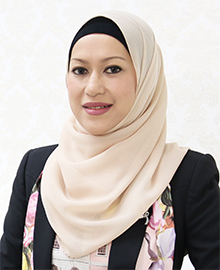
Kris exudes a sense of grace and confidence in the way she carried herself. She was always calm and collected, and had great stories to share in her own relaxed and steady manner.
I remember she asked me why did I go into publishing? I responded that it wasn’t a very smart business decision, comparing the endeavor to owning a luxury boat or keeping horses as hobby. Both of which burn deep holes in the pocket.
Kris just smiled and remained quiet.
Few weeks later, out of a casual whatsapp exchange with Kris, I learned that she actually used to own a boat. And some horses.
Her poise, boldness and vision reminded me of Richard Branson. The launch of her Hana-Soy brand attracted two ministers and many of the government’s top officials to the event. It was almost like a celebration of a national hero that Brunei long waited for in an entrepreneur.
In our interview, we spoke about the opportunities of the 1.9 billion strong global halal market, and the potential of the upcoming Olympic in Japan in 2020 for her products.
She’s one of the few people I met in Brunei that truly understands branding. Kris had a vision for her brand far beyond just halal Soy Milk. On a trip back from Japan, she realized the potential of tropical Orchids for the Japanese market. Right after that she organized for 40 foot containers of Orchids from local growers to be shipped to Japan under the Al-Hana brand. She had her eyes set far beyond Brunei long before anyone I knew. She was truly way ahead of her time.
Like many of the icons that are bigger than life, Kris left too soon.
She lost her battle to cancer in December 2014, survived by her husband and 5 children.
I often wondered how she would have carried her company forward if she was still around.
In fact, I knew the answer all along. Kris could have gone places, and put Brunei on the map with great poise and her own gracious touch.

Writing Norali’s story was one of the most challenging tasks I had to face in my short stint as an editor. I didn’t want to portray him as a person with disability to inspire the rest of us. I believe that is wrong. No one shall be put on the pedestal to inspire others simply because of their mishap. People need to be celebrated and honoured for what they achieved, the people they have touched and how they overcome adversity.
Norali was on the cover on his own merit and the accomplishments he attained. A marathon runner, a chevening scholar and an avid swimmer, he could kick most people’s ass on any of the above, blindfolded. That’s the magic of Norali.
Even though Norali is visually impaired, you would not be able to tell that from our cover.
That was perhaps one of the proudest decisions that we have made as a team.
Visually perfect or impaired, you’d be equally impressed by the passion and vigor in this relentless optimist.
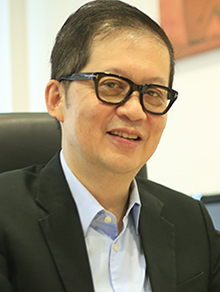
I used to work for Mr Ong early on in my career. It was a badge of honour to tell people that I worked for Timothy Ong in Brunei and that I worked for an international publication – Asia Inc magazine.
You would have thought that after more than a decade of knowing the man, I would feel at ease being around him. I still get butterflies meeting him every few months for our regular interview feature: “Face to Face with Dato Timothy Ong”.
Why?
May be it is his extraordinary charisma, his eloquence and his depth of experience. And his knack for story-telling like nobody else. And his brilliance. People who have met him would understand the sentiment.
In a small country like Brunei, it is rare to meet a man who carries so much wisdom, with such diverse perspective about the world, politics and business and still have the humility to look you in the eyes, ask you questions and listen to your opinion.
I’ve published more than 8 interviews with him so far. I’ve learned more than my share of wisdom from his stories. I often wonder what have I done to deserve to spend time with some of the most outstanding minds in the world.
Each time after a conversation with him, I leave the room feeling smarter because of the interaction.
What do great leaders look like? You’d know one when you meet one. Sometimes, it’s got less to do with who they are than how they make you feel about yourself.
Like me, I wish you’re lucky enough to experience working for a leader like that in your lifetime.
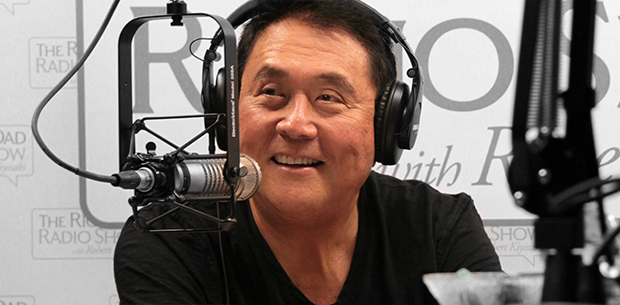
Let’s get the record straight – I have not met Robert Kiyosaki. I’ve read his books. And I’ve seen him on YouTube numerous times.
But, even though I have not met the best selling business author of all time, I can brag about having interviewed him for the cover of our magazine thanks to the miracle of the internet.
What I learned from Robert Kiyosaki was less about the content of our Q&A than the process of getting him on our cover.
Featuring Robert Kiyosaki on our cover marked the first big break of our magazine to have an international icon on our humble publication.
It all came with an idea of thinking really big; with asking ourselves: what would we do if we weren’t afraid?
We started off our endeavor by reaching out to a list of high profile personalities on our wish list. We were persistent and relentless with our pursue. After all, we had nothing to lose.
We reached for Robert Kiyosaki’s (and a dozen of other big names’) website, facebook, twitter, book publisher and to his own publicist. We were sincere about our intention; we were passionate about our cause. We threw more than a lot of muds on the wall…
One stuck.
The Robert Kiyosaki experience taught us the value of thinking big.
What would you do if you weren’t afraid?

When I interviewed Paula Malai Ali, I was most curious about how she handled the interviews with some of the world’s biggest name. How did she not get intimidated questioning the likes of Usain Bolt, Rafael Nadal and Lewis Hamilton?
I remember her telling me that you only get a few minutes of their time, you only get one shot, and one shot only. There’s no second take, and you cannot afford to stuff it up. You have to act professionally and be professional. “The interview is never about you. It’s about them. You cannot afford to feel nervous. You just have to be in the present and block out the fear.”
At that time, I thought it all sounded very convincing but I also realized that she hadn’t exactly given me any tool to use. Quite basically, in my mind – she was telling me to: Just Do It!
As if it helped.
But that one sentence stuck when I entered into my interview with the biggest star in China, Fan Bingbing. Words for words, I remembered exactly what Paula told me. I blocked out the nerve and told myself, it’s not about me; all the audience wanted to learn about was the Star.
Not me. Not me. Not me.
And it worked!
Thank you Paula. Sometimes the best advice may not seem like the best advice.
Heed it anyway.

How do I explain the notion of small town syndrome to somebody from a big city? It is a mindset, a perception and a disease unique to people in the small town that everyone should fit into the same mold; you shouldn’t be too tall, too short, too outstanding, too good looking, too rich or too poor.
So, what do you do with outliers like Wu Chun who seems to have everything together? Fame, fortune, the perfect family – a beautiful daughter and a son, nice cars with a capital (S) and flawless skin.
The naturally response, is, you hate him.
Luckily for Wu Chun, the sentiment of our culture is slightly subtler than that. The extent of our affair with Wu Chun cannot be considered as hate, but if we are really honest, it is impossible not to have a tint of jealousy in our deep secret. Not that he is always on top of everyone’s mind, except every other day when we see him on the newspaper, with different important figures doing yet another publicity stunts or charity projects.
Nothing personal, Mr Wu, it’s just a small town syndrome.
Ok, may be I do not speak for the majority of the Bruneian. But that was the sentiment I felt before having interviewed him 3 times and got to hang out with him everyday for two weeks at his invitation to his movie launch in China.
What I learned from him (which I documented on Inspire magazine) isn’t nearly as interesting as what surprised me about this Brunei born superstar.
People who don’t know Wu Chun would often write him off as the actor with just the pretty face, without discovering the other side of him that made him successful and revered in the industry; his humility, his work ethic and high EQ.
Not only is Wu Chun conscientious and possesses all the necessary qualities to excel at the highest level, what surprises me the most about Wu Chun was his quiet sense of confidence.
Right now, he’s contented for you to love him, call him a pretty boy or even hate him. Because he understands full well that: A/ he cannot control what other people think about him and B/ the life in the entertainment industry has an expiry date to it.
It is his fortitude and the baby steps that he is taking outside of the entertainment industry which makes him so dangerous; Both with his own Business Empire and his passion for fitness and the community.
For this extraordinary heartthrob who doesn’t seem to fit quite well into the mold, his story may only have just begun.

There are very few people whom I’ve met that commands such an audacious presence that when they step into the room, everything comes to a standstill and they become the instant centre of the universe. Fan Bingbing was one of them. Her charisma is so powerful that it was almost intimidating.
Watching Fan worked the room was almost like admiring her on the big screens; beautiful, awe-inspiring and unbelievably fearless. She knows exactly the right words to say, when to pause and how to articulate the perfect answers with anything the press throws at her.
Behind the stage, she was always surrounded by an army of entourages. Her manager, Kwan Ker was a towering figure not to be messed with, which adds to the untouchable aura that is much needed to keep her secured.
Throughout the few behind-the-scenes encounters with Fan, I remember not having any interaction with her, not even the exchange of eye contact. You have to understand that there are plenty of people at the back stage, and there’s no reason for you to get noticed if you are a “nobody”.
I managed to get an interview opportunity with Fan through the help of Wu Chun on the last day of our tour. I blocked out the fear and be professional and did my job.
I don’t quite remember most of what was exchanged between us, although it was all recorded on my iphone and documented on the magazine.
But she surely gave me a sense of optimism about my daughters’ future, that women can rule the world, even in a world dominated with male chauvinistic culture for centuries.

As far as intellectual conversation is concerned, Marshall Goldsmith is possibly one of the biggest name that we have and would ever cover. He’s written a number of international bestsellers, and was recognized as one of the top leadership thinkers in the world by Thinkers 50.
During the interview, our conversation centered around the topic of leadership, courage and personal growth. You would have thought that talking to people of such caliber involves deep and complicated theories. Quite on the contrary he was able to relay his idea with great simplicity, clarity and occasionally a sense of humour.
Given a chance to interview the person who coaches head of states and CEOs of Fortune 500 companies, what would you ask him?
I have always been intrigued by why successful people would continue to work hard, even though they are set with their income for the rest of their life.
At age 67, there is really no reason for Marshall Goldsmith to keep up with his gruelling schedule, traveling around the world giving consultations.
So, I asked him just that.
In his pragmatic manner, he gave me a straight answer: “consider the alternative” he said. “I could wake up everyday play golf and hang around my group of old friends talking about the weather…”
Or
“I could do this. Which is infinitely more interesting.” His face lit up.
Indeed, if you found what you love to do, there’s no need to work another day in your life.
If you were to meet Marshall, you would notice that he has an astounding level of energy and an unmatched sense of presence. I asked him if all the successful people he knows share a certain regime like morning exercise ritual or a certain patterns that make them more productive. I wanted to know what keeps Marshall Goldsmith performing at the optimal level.
His answer almost surprised me. He doesn’t believe in a one size fit all model. He said that he’s come across plenty of successful people, and they come in almost any different shapes and sizes imaginable. Some are early riser, some start late. Some takes great care of their body, others are grossly overweight.
However, there is a common trait amongst them that is undeniable–discipline and consistency. He noted that most people know what it takes to be successful but they lack those two elements.
Which is why Marshall pays an assistant to call him once a day, everyday, wherever he is in the world, to ask him the same 10 questions to ensure that he is consistent with his goal.
That was it: his Secret Weapon.
Marshall acknowledges that the human mind is often too weak to manage themselves, and even he himself is not immune. What effective leaders need is to establish is an external system to hold themselves accountable to the things they needed to do in order to succeed.
Marshall reminded us that success is never complicated, but do not depend on your own willpower.
Get help!
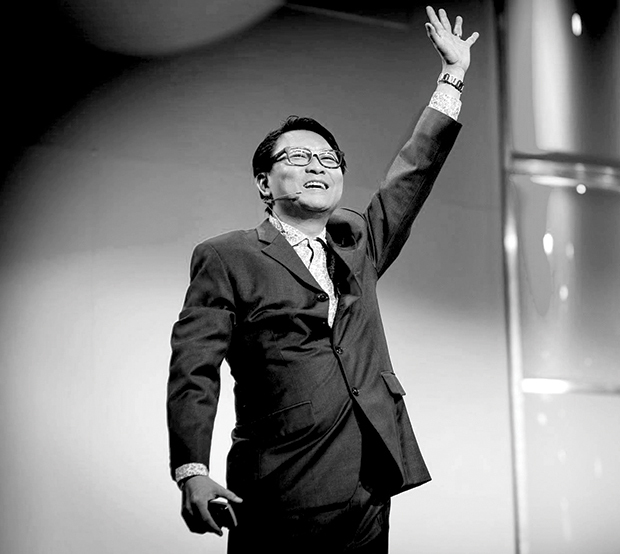
When I first saw Richard, he was about 3cm tall. Actually, he looked more like 2cm in height standing next to Tony Robbins fifty meters away on the stage from where I was seated.
That was almost two decades ago, when I underwent one of the most transformational experience of my life, walking on fire while chanting “kumos” together with two thousand other students at the instruction of the world’s most foremost life coach.
To me, Richard – the person who brought Tony to Singapore, was just as intriguing a figure as Tony himself. I’ve always wondered how a tiny Singaporean who spoke no perfect English could orchestrate some of the world’s richest and most influential people in the world like Bill Clinton, Donald Trump, Robert Kiyosaki and Richard Branson to give talks in Asia..
Despite being an admirer of his work, I never had a chance to meet Richard, to thank him for his influence and tell him how his work had inspire me. There wasn’t exactly any opportunity or excuses to meet the man.
One of the perks of working for the media is that you can create any excuses to access to almost anybody you wish to, in the name of an “exclusive interview”. After several email exchanges, Richard accepted my interview request, I flew into Singapore to see him and the rest was history.
When we met at Richard’s office, we began with some cordial small talks before proceeding to the interview questions.
Like all the masterful communicators Richard brought before us, he was able to established an instant connection by identifying that he used to work in my hometown, KB. And that he was the publisher of a woman’s magazine long ago.
Richard was complimentary about my work and was quick to point out that he closed down the publishing business after a short stint, because he couldn’t make it work. He remembered getting plenty of women’s product samples in lieu of advertising dollars, which he didn’t have much use of.
I asked him what were some of the lessons he learned from his publishing endeavor. He made a few poignant points. One of them being that he was in it because he saw a business opportunity in the women’s market. But he’s got no passion or expertise in the industry.
Admittedly, Richard was only in it for the money. That was mistake number one.
Richard also shared with me that in order to have any chance to thrive in the brutal publishing industry, the editor has to be extremely passionate. He must live and breathe what he writes.
That served as an important reminder to me as an editor.
Beyond being a great event organizer, Richard is also a very successful businessman. His business now spans across all different continents, churning out over 500 events per year.
During our interaction Richard was extremely generous with sharing his business secrets with me. There was no questions that were off limits.
For example, he would tell me his business model in making a conference profitable; how to generate extra revenue from other channels and how to offset the hefty fee spend on hiring the world’s best speakers.
In the duration of 45 minutes, Richard gave his entire trade secrets away to a perfect stranger whom he met for the very first time.
After the meeting, I thought to myself – why would anyone be so transparent and so generous? And then I realized that it is not those trade secrets that made Richard successful.
It is the act of walking the talk, of giving away the best practices over and over again to empower others, which has always been the core reason for his entire businesses’ existence that makes Success Resources, one of the ultimate success resources of the world.

Thank you for sharing these valuable stories.
I have read it over 3 times and continue to learn from each story.